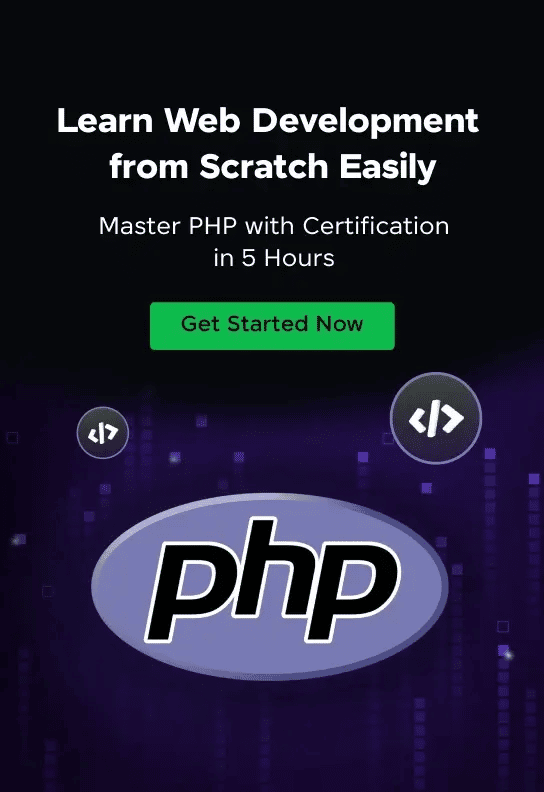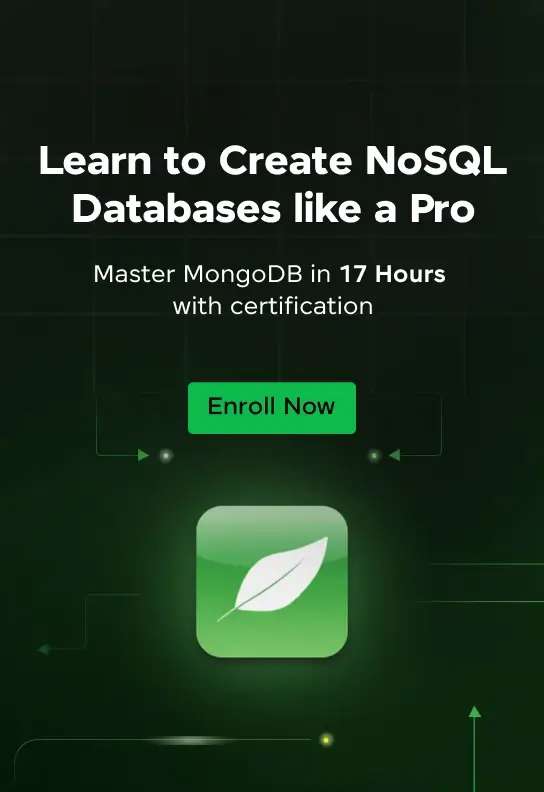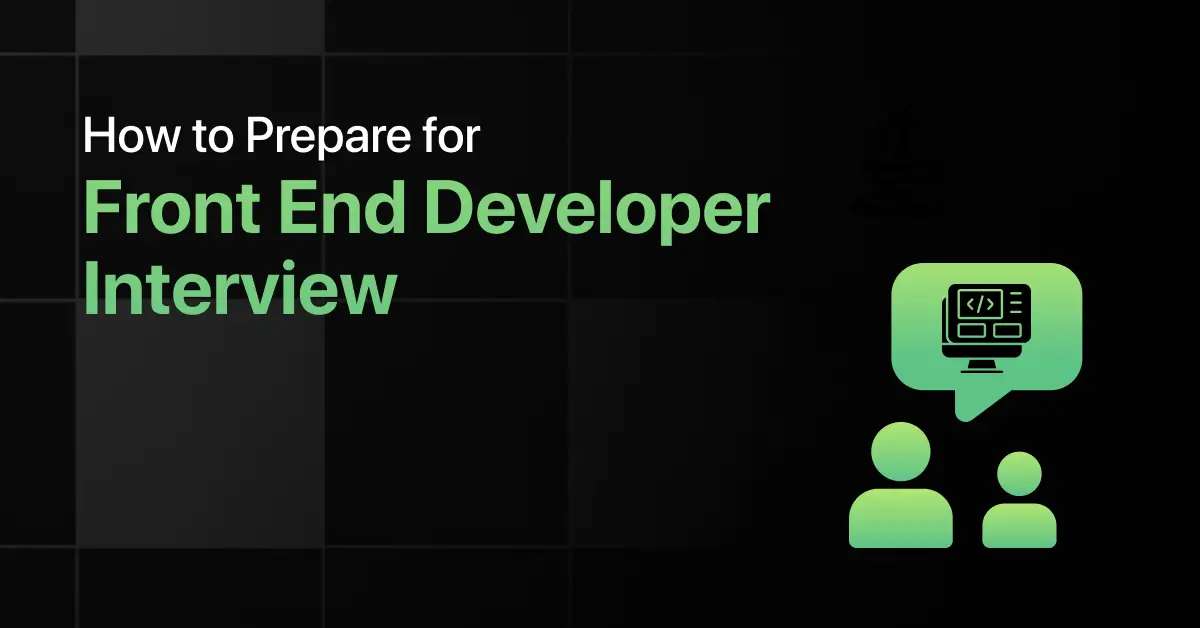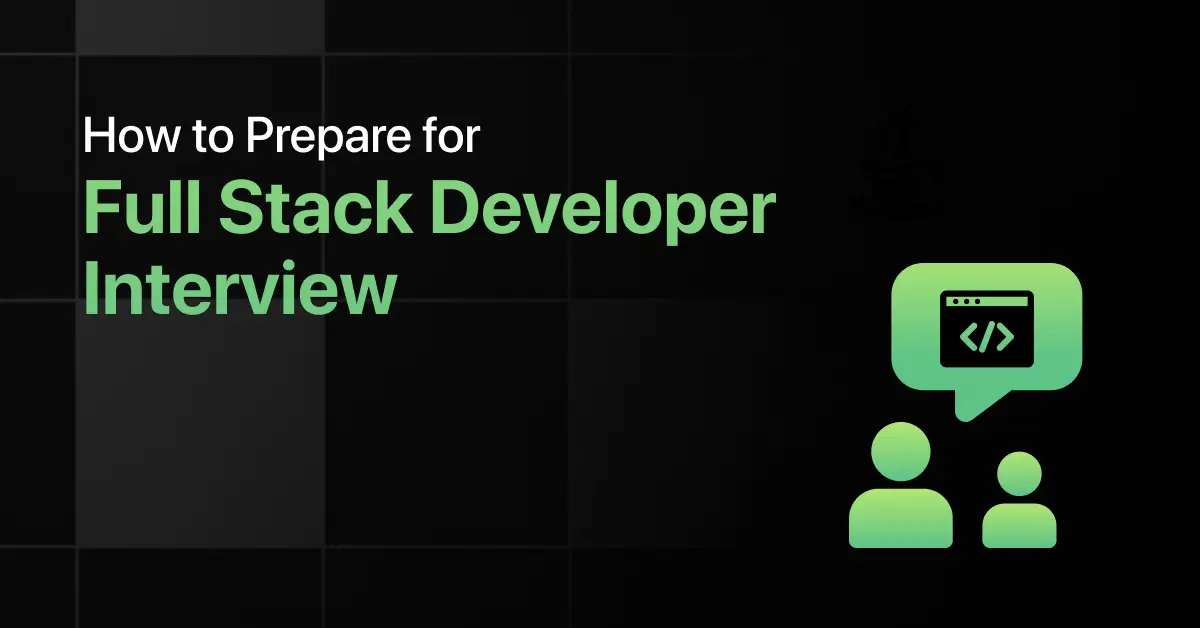Best Backend Project Ideas for Beginners
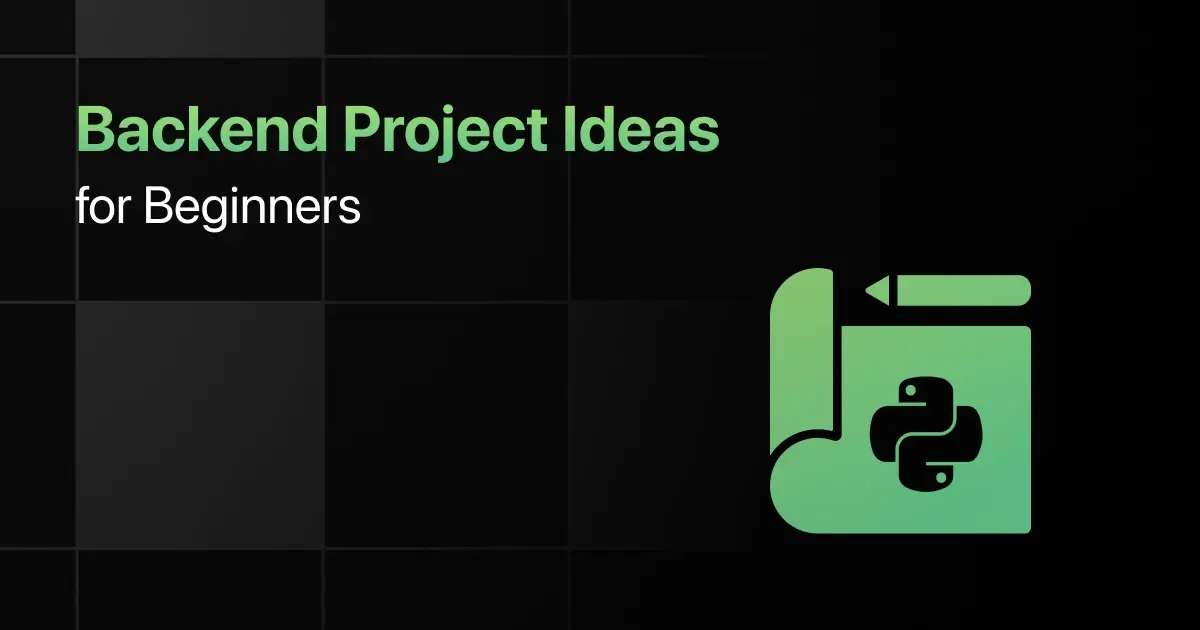
Are you interested in mastering Backend Development? But, do you need help figuring out how and where to start? We have got you covered!
The Backend development field is usually considered tough to learn among people. But it is a fact that many people are looking for jobs in this field. Thus, making a great unique portfolio plays a vital role.
Read the article to understand all the technical aspects of the top 10 backend projects.
10 Beginner-Friendly Backend Project Ideas – Overview
Here’s an overview of the 10 best backend projects for beginners:
| S.No. | Project Title | Complexity | Estimated Time | Source Code |
|---|---|---|---|---|
| 1 | Sports Statistics App | Easy | 20 hours | View Code |
| 2 | Blogging Platform | Easy | 30 hours | View Code |
| 3 | Task Management System | Easy | 30 hours | View Code |
| 4 | Product Catalog Management | Medium | 35 hours | View Code |
| 5 | Build REST API | Medium | 30 hours | View Code |
| 6 | File Sharing System | Medium | 35 hours | View Code |
| 7 | Inventory Management | Medium | 30 hours | View Code |
| 8 | Personal Finance Tracker | Medium | 30 hours | View Code |
| 9 | Chat Application | Medium | 35 hours | View Code |
| 10 | E-commerce Website Backend | Medium | 35 hours | View Code |
Top 10 Backend Development Projects for Beginners
Below are the top 10 backend project ideas for beginners:
1. Sports Statistics App
This project involves creating an application to track and display statistics for various sports teams and players.
You will learn how to use MongoDB for storing, retrieving, and manipulating sports data, including player statistics, team information, and match outcomes.
Duration: 20 hours
Project Complexity: Easy
Learning Outcome: Understanding of data modeling and aggregation in MongoDB
Portfolio Worthiness: Yes
Required Pre-requisites:
- Basic knowledge of MongoDB and its query language
- Familiarity with a backend programming language (e.g., JavaScript/Node.js)
- Understanding of RESTful APIs
Resources Required:
- MongoDB database
- Development tools (IDE)
- Backend framework (e.g., Express.js)
Real-World Application:
- Can be used by sports analysts and enthusiasts to track performance trends
- Provides a foundation for developing analytics tools for sports betting platforms
2. Blogging Platform
This is one of the MongoDB mini projects which is about developing a platform where users can create, publish, and manage blog posts, as well as interact with posts through comments and likes.
You will learn how to handle text-based content and user interactions in MongoDB, focusing on document modeling, CRUD operations, and simple text search capabilities.
Duration: 30 hours
Project Complexity: Easy
Learning Outcome: Understanding of CRUD operations and document modeling in MongoDB
Portfolio Worthiness: Yes
Required Pre-requisites:
- Basic understanding of MongoDB
- Knowledge of a web development framework
- Familiarity with HTML/CSS for the frontend
Resources Required:
- MongoDB database
- Web development environment (e.g., Node.js with Express)
- Frontend technology (optional, for UI)
Real-World Application:
- Foundation for Content Management Systems
- Can be adapted for news platforms, personal diaries, or educational resources
3. Task Management System
This project entails building a system that allows users to create, manage, and track tasks with deadlines, priorities, and categories.
You will learn how to implement CRUD operations in MongoDB, manage user authentication, and organize data efficiently.
Duration: 30 hours
Project Complexity: Easy
Learning Outcome: Understanding of CRUD operations and basic data relationships in MongoDB
Portfolio Worthiness: Yes
Required Pre-requisites:
- Basic MongoDB knowledge
- Understanding of a server-side language (e.g., Python, JavaScript)
- Familiarity with REST API development
Resources Required:
- MongoDB setup
- Code editor or IDE
- Backend framework (e.g., Express for Node.js, Django for Python)
Real-World Application:
- Enhances personal productivity and task organization
- Serves as a foundational model for developing project management tools
4. Product Catalog Management
This project is about developing a system to manage a catalog of products, including categories, descriptions, and pricing information.
You can learn to use MongoDB for handling complex queries and managing product data efficiently.
Duration: 35 hours
Project Complexity: Medium
Learning Outcome: Understanding of complex querying and data modeling in MongoDB
Portfolio Worthiness: Yes
Required Pre-requisites:
- Basic knowledge of MongoDB
- Experience with a backend programming language
- Understanding of JSON data format
Resources Required:
- MongoDB database
- Development environment setup (IDE)
- Optional: Front-end technology for UI (e.g., React, Angular)
Real-World Application:
- Forms the backbone of e-commerce site functionalities
- Useful for inventory and stock management systems
5. Build a Rest API with Node, Express, and MongoDB
This project involves creating a RESTful API that allows clients to interact with application data stored in a MongoDB database.
You will learn how to set up a Node.js server with Express framework and use MongoDB to store, retrieve, update, and delete data through HTTP requests.
Duration: 30 hours
Project Complexity: Medium
Learning Outcome: Understanding of REST API development, Express middleware, and MongoDB operations.
Portfolio Worthiness: Yes
Required Pre-requisites:
- Basic understanding of JavaScript and Node.js
- Familiarity with MongoDB and its query language
- Knowledge of HTTP methods and REST principles
Resources Required:
- Node.js and npm (Node Package Manager)
- MongoDB database (local or cloud-based with MongoDB Atlas)
- Postman or similar tool for testing API endpoints
Real-World Application:
- Acts as a backend for web or mobile applications
- Foundation for building complex APIs for large-scale applications
6. File Sharing System
This project involves creating a platform that allows users to upload, download, and share files with others.
You will learn how to handle file uploads in MongoDB using GridFS, manage user permissions, and ensure secure file access and sharing.
Duration: 35 hours
Project Complexity: Medium
Learning Outcome: Understanding of handling binary data with GridFS in MongoDB and implementing file sharing and user authentication.
Portfolio Worthiness: Yes
Required Pre-requisites:
- Basic knowledge of MongoDB, including GridFS for handling large files
- Experience with a backend framework (e.g., Express.js for Node.js)
- Understanding of RESTful API principles and user authentication mechanisms
Resources Required:
- MongoDB setup with GridFS
- Backend server setup (Node.js + Express.js recommended)
- Front-end interface for interacting with the system (optional)
Real-World Application:
- Can be utilized for personal cloud storage solutions
- Basis for developing collaboration tools with file-sharing capabilities
7. Inventory Management
This project is focused on creating a system for businesses to manage their inventory, including tracking stock levels, product details, and orders.
You can learn to use MongoDB for efficient storage and retrieval of inventory data, manage relationships between different data entities, and perform complex queries for inventory analysis.
Duration: 30 hours
Project Complexity: Medium
Learning Outcome: Understanding of data modeling, aggregation, and transactions in MongoDB.
Portfolio Worthiness: Yes
Required Pre-requisites:
- Basic understanding of MongoDB operations and data modeling
- Familiarity with a server-side programming language (e.g., JavaScript/Node.js)
- Knowledge of RESTful API development for integrating with front-end applications
Resources Required:
- MongoDB database
- Development tools (IDE, Postman for API testing)
- Backend framework (e.g., Express.js for Node.js)
Real-World Application:
- Essential for businesses needing to track and manage stock efficiently
- Provides a foundation for developing comprehensive e-commerce solutions
8. Personal Finance Tracker
This project involves developing an application that helps users track their income, expenses, and financial goals.
You will learn to use MongoDB for storing financial transactions, categorizing expenses, and generating reports or summaries of financial health.
Duration: 30 hours
Project Complexity: Medium
Learning Outcome: Understanding of CRUD operations, data modeling, and aggregation pipelines in MongoDB.
Portfolio Worthiness: Yes
Required Pre-requisites:
- Basic knowledge of MongoDB and its query language
- Experience with a backend framework (e.g., Node.js with Express)
- Understanding of RESTful services and possibly basic front-end development
Resources Required:
- MongoDB database setup
- Backend server environment (Node.js + Express.js recommended)
- Front-end technology for user interface (optional, e.g., React or Angular)
Real-World Application:
- Helps individuals manage their finances more effectively
- Can be scaled into a comprehensive budgeting tool for small businesses
9. Chat Application
This project involves creating a real-time chat application where users can send messages, create chat rooms, and possibly share files.
You’ll learn to use MongoDB for storing messages, user profiles, and room information, as well as implementing real-time data processing with technologies like Socket.io.
Duration: 35 hours
Project Complexity: Medium
Learning Outcome: Understanding of real-time data handling, CRUD operations, and data modeling in MongoDB.
Portfolio Worthiness: Yes
Required Pre-requisites:
- Basic understanding of MongoDB operations
- Knowledge of Node.js and a web socket library like Socket.io for real-time communication
- Familiarity with creating and managing user sessions
Resources Required:
- MongoDB database
- Node.js environment
- Socket.io or similar for real-time communication
- Front-end framework or library for the interface (optional)
Real-World Application:
- Basis for developing messaging platforms for personal or enterprise use
- Can be extended to support features like file sharing, voice, and video calls
10. E-commerce Website Backend
This project involves creating the backend for an e-commerce application and handling product listings, user accounts, orders, and payments.
You will learn how to use MongoDB for storing and querying product data, managing user data, and handling transactions.
Duration: 35 hours
Project Complexity: Medium
Learning Outcome: Understanding of transactions, complex queries, and data modeling in MongoDB.
Portfolio Worthiness: Yes
Required Pre-requisites:
- Intermediate knowledge of MongoDB, including transactions and data modeling
- Experience with a backend framework (e.g., Node.js with Express)
- Basic understanding of e-commerce business logic
Resources Required:
- MongoDB database
- Backend server setup (e.g., Node.js and Express.js)
- Payment gateway integration (e.g., Stripe, PayPal APIs)
Real-World Application:
- Core technology stack for online retail platforms
- Basis for building comprehensive e-commerce solutions with custom features
Final Words
Backend mini projects can help you understand database management better, and make you more attractive to employers.
These Backend projects for your resume will not only increase your chances of landing a job in backend development but also give you project management skills.
Explore More Project Ideas
- Python
- Java
- C Programming
- HTML and CSS
- React
- JavaScript
- PHP
- C++
- DBMS
- SQL
- Excel
- Angular
- Node JS
- DSA
- Django
- Power BI
- R Programming
- Operating System
- MongoDB
- React Native
- Golang
- Matlab
- Tableau
- .Net
- Bootstrap
- C#
- Next JS
- Kotlin
- jQuery
- React Redux
- Rust
- Shell Scripting
- Vue JS
- TypeScript
- Swift
- Perl
- Scala
- Figma
- RPA
- UI/UX
- Automation Testing
- Blockchain
- Cloud Computing
- DevOps
- Selenium
- Internet of Things
- Web Development
- Data Science
- Android
- Data Analytics
- Front-End
- MERN Stack
- Big Data
FAQs
Some easy backend project ideas for beginners are:
- Sports statistics app
- Blogging platform
- Task management system
Backend development projects are important for beginners as they offer hands-on experience, a deeper understanding of NoSQL databases, and skills in data modeling.
From backend projects, beginners can learn CRUD operations, data modeling, querying and aggregation, indexing, security practices, integration with different programming languages and frameworks, and database administration.
A simple task management backend project is recommended for someone with no prior programming experience.
It typically takes 25 hours to complete a beginner-level backend project.
Related Posts
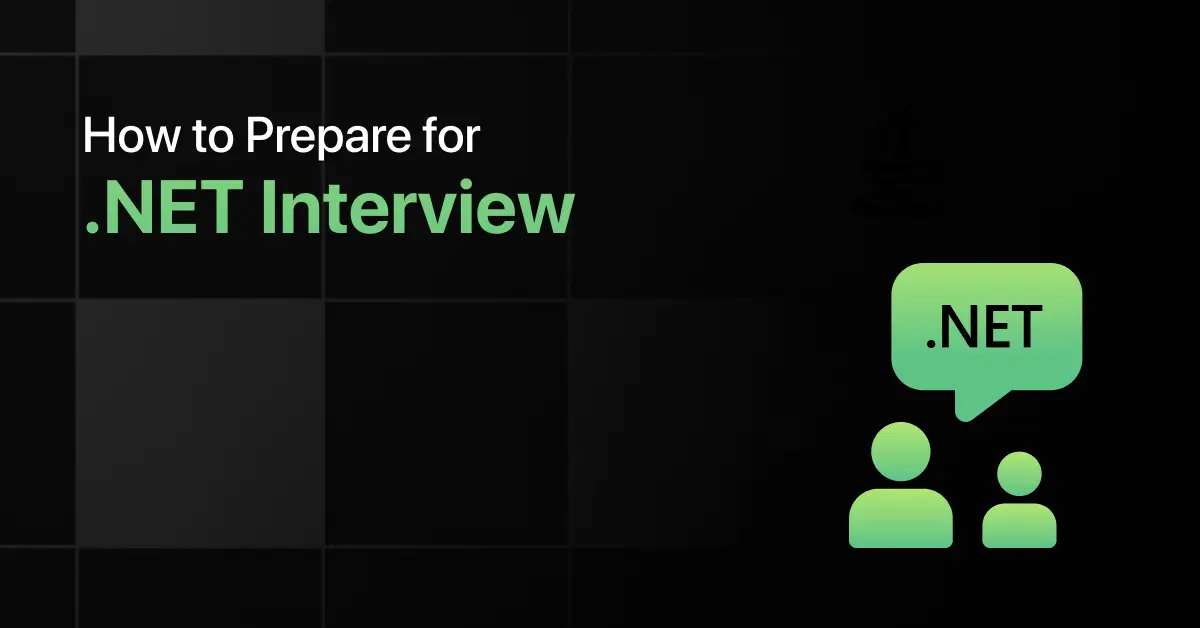

How to Prepare for .Net Interview
Are you preparing for a .NET interview but not sure which topics to prioritize? Many candidates struggle to balance C# fundamentals, …
Warning: Undefined variable $post_id in /var/www/wordpress/wp-content/themes/placementpreparation/template-parts/popup-zenlite.php on line 1050

